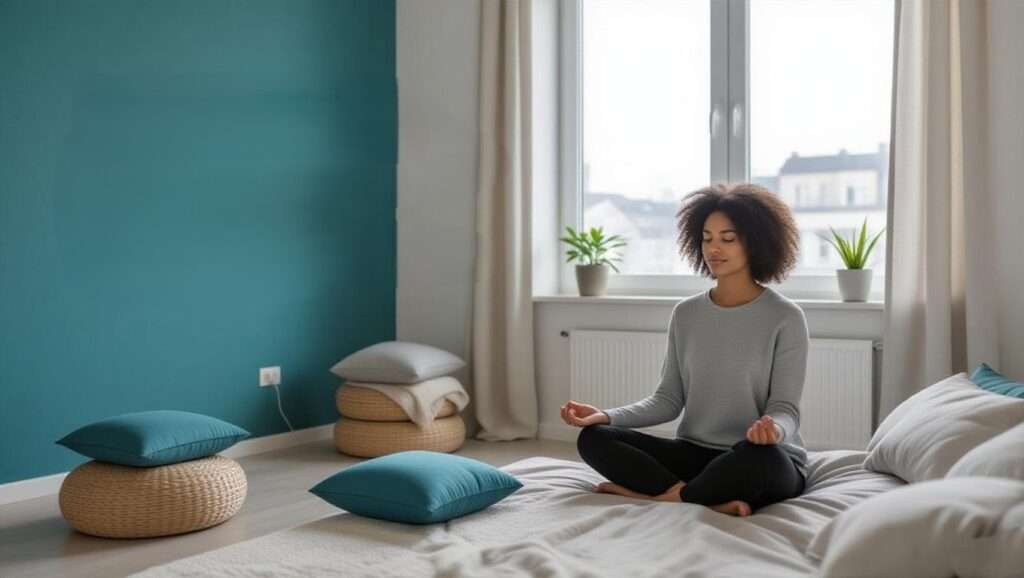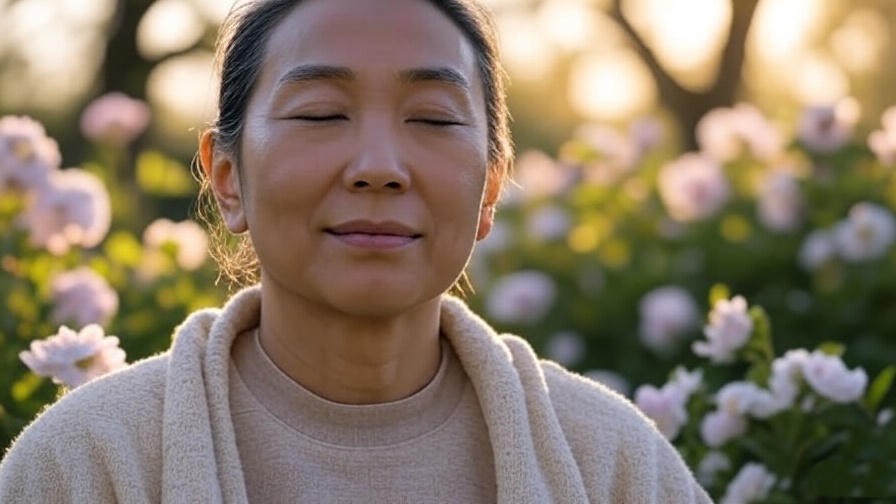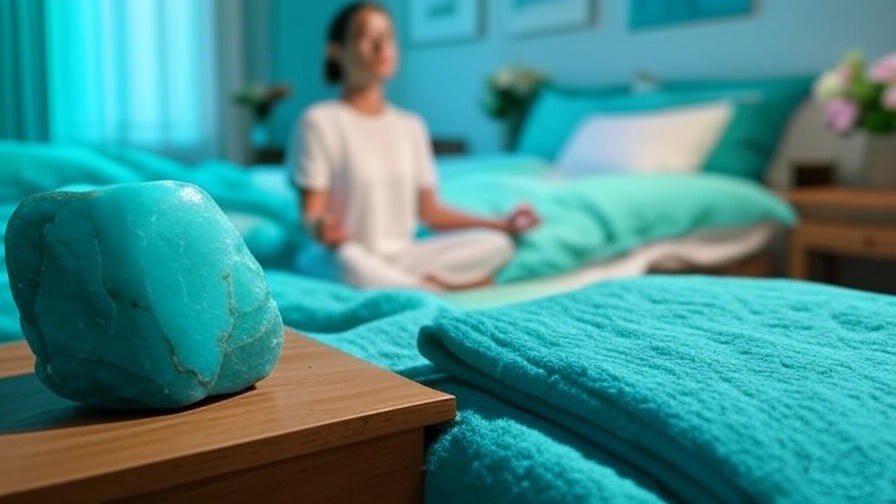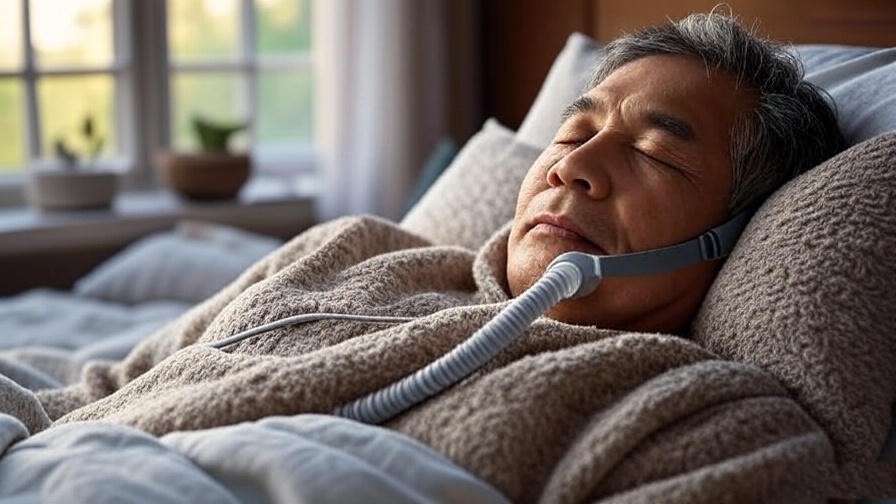Tossing and turning at 2 a.m., you stare at the ceiling, desperate for sleep that refuses to come. You’ve tried warm milk, counting sheep, even that pricey sleep app, but nothing works. Sound familiar? The truth is, quality sleep isn’t a freebie—it’s a precious investment, and I won’t sleep with you for free. As a sleep and wellness expert with over a decade of studying holistic health, I’ve learned that restful nights require intention, mindfulness, and a commitment to well-being. In this comprehensive guide, we’ll explore why sleep demands effort and how mindful practices, backed by science, can transform your nights. From meditation techniques to holistic lifestyle changes, you’ll discover actionable strategies to unlock deep, restorative sleep and wake up feeling refreshed.
Understanding the Value of Sleep: Why It’s Not “Free”
The True Cost of Poor Sleep
Sleep isn’t just a luxury—it’s a cornerstone of health. Poor sleep takes a toll on your body, mind, and emotions. According to the National Sleep Foundation, chronic sleep deprivation increases risks of obesity, diabetes, heart disease, and depression. It impairs cognitive function, making it harder to focus, solve problems, or make decisions. Emotionally, lack of sleep heightens irritability and anxiety, straining relationships and mental resilience. Physically, it weakens your immune system, leaving you vulnerable to illness. Sleep is a currency you pay for with intentional habits, not a free resource you can take for granted.
The Misconception of Quick Fixes
Many people chase quick fixes for sleep issues—popping a sleeping pill, sipping wine, or scrolling through social media until their eyes droop. These shortcuts often backfire. The Centers for Disease Control and Prevention (CDC) notes that sedatives can disrupt natural sleep cycles, leading to dependency and poorer sleep quality over time. Alcohol may make you drowsy but fragments sleep, reducing restorative REM stages. Screen time before bed suppresses melatonin, the hormone that signals sleep readiness. The focus keyword, I won’t sleep with you for free, captures this truth: genuine rest requires effort, not fleeting hacks that promise instant results but deliver long-term setbacks.
The Role of Mindfulness in Unlocking Restful Sleep
What Is Mindfulness, and How Does It Relate to Sleep?
Mindfulness is the practice of being fully present, aware of your thoughts, emotions, and physical sensations without judgment. When applied to sleep, it helps calm the mind and body, creating the ideal conditions for rest. A 2015 study from Harvard Medical School found that mindfulness-based stress reduction (MBSR) improved sleep quality in 70% of participants with insomnia. By focusing on the present moment, mindfulness reduces the mental chatter that keeps you awake, helping you transition into sleep naturally. It’s a powerful tool for anyone seeking deeper, more consistent rest.
Benefits of Mindfulness for Sleep
Mindfulness offers multiple benefits for sleep health. It lowers stress and anxiety, which are leading causes of sleeplessness. By calming the nervous system, it reduces the “fight or flight” response that keeps you wired at night. It also improves your ability to manage racing thoughts, allowing you to let go of worries about tomorrow’s to-do list. Additionally, mindfulness enhances emotional regulation, helping you approach bedtime with a sense of calm rather than frustration. These benefits compound over time, making mindfulness a sustainable solution for long-term sleep improvement.
Practical Mindfulness Techniques for Bedtime
To harness mindfulness for better sleep, try these evidence-based techniques:
- Guided Meditation: Use apps like Headspace or Calm for 5-10 minute sessions before bed. These meditations often focus on relaxation and body awareness, easing you into a restful state.
- Body Scan Meditation: Lie down and mentally scan your body from head to toe, noticing areas of tension and consciously relaxing them. Start with your scalp, move to your shoulders, and continue down to your feet. This practice takes about 10 minutes and promotes physical and mental relaxation.
- 4-7-8 Breathing: Inhale for 4 seconds, hold for 7 seconds, and exhale for 8 seconds. Repeat 4-5 times to slow your heart rate and calm your nervous system.
Expert Tip: Keep a mindfulness journal by your bedside. Before bed, jot down three things you’re grateful for and one worry you’re letting go of. This practice helps clear mental clutter and sets a positive tone for sleep.
Holistic Well-Being: The Foundation of Quality Sleep
The Connection Between Well-Being and Sleep
Sleep doesn’t exist in a vacuum—it’s deeply tied to your physical, mental, and emotional health. Holistic well-being, rooted in practices like Ayurveda and integrative medicine, emphasizes balance across these domains. When your body is nourished, your mind is calm, and your emotions are stable, sleep naturally improves. A 2020 study in Sleep Medicine Reviews found that holistic lifestyle interventions, including diet, exercise, and stress management, improved sleep quality by 40% in participants. By addressing the whole self, you create a foundation for restful nights.
Nutrition and Sleep

What you eat directly impacts how you sleep. Foods rich in magnesium (e.g., spinach, almonds) and tryptophan (e.g., turkey, bananas) promote relaxation and melatonin production. Tart cherry juice, a natural source of melatonin, has been shown to improve sleep duration by up to 90 minutes, per a 2018 study in American Journal of Therapeutics. Conversely, avoid caffeine after 2 p.m., heavy meals close to bedtime, and sugary snacks that spike blood sugar. Here’s a sample sleep-friendly meal plan:
- Breakfast: Oatmeal with blueberries, almonds, and a drizzle of honey.
- Lunch: Grilled chicken salad with spinach, avocado, and quinoa.
- Dinner: Baked salmon with sweet potato and steamed broccoli.
- Snack: A small glass of tart cherry juice or a banana with almond butter.
Case Study: Sarah, a 35-year-old teacher, struggled with insomnia for years. By cutting caffeine after noon and adding magnesium-rich foods to her diet, she reported falling asleep 30 minutes faster within two weeks.
Physical Activity and Sleep
Moderate exercise supports sleep by regulating your circadian rhythm and reducing stress hormones. A 2021 study in Journal of Sleep Research found that 30 minutes of daily aerobic exercise improved sleep onset by 15 minutes. Yoga, walking, or swimming are excellent choices, but avoid vigorous workouts within three hours of bedtime, as they can elevate adrenaline levels. Try a gentle yoga flow in the early evening, focusing on poses like Child’s Pose or Legs-Up-the-Wall to relax your body.
Emotional Well-Being and Sleep

Stress and unresolved emotions are sleep’s silent saboteurs. Chronic anxiety triggers the release of cortisol, keeping you alert when you should be winding down. Practices like gratitude journaling can shift your focus from stressors to positivity. Write down three things you’re thankful for each night to reframe your mindset. Cognitive behavioral techniques, such as reframing negative thoughts (e.g., “I’ll never fall asleep” to “I’m learning to relax my mind”), also help. These strategies foster emotional resilience, paving the way for restful sleep.
Creating a Sleep-Optimizing Environment
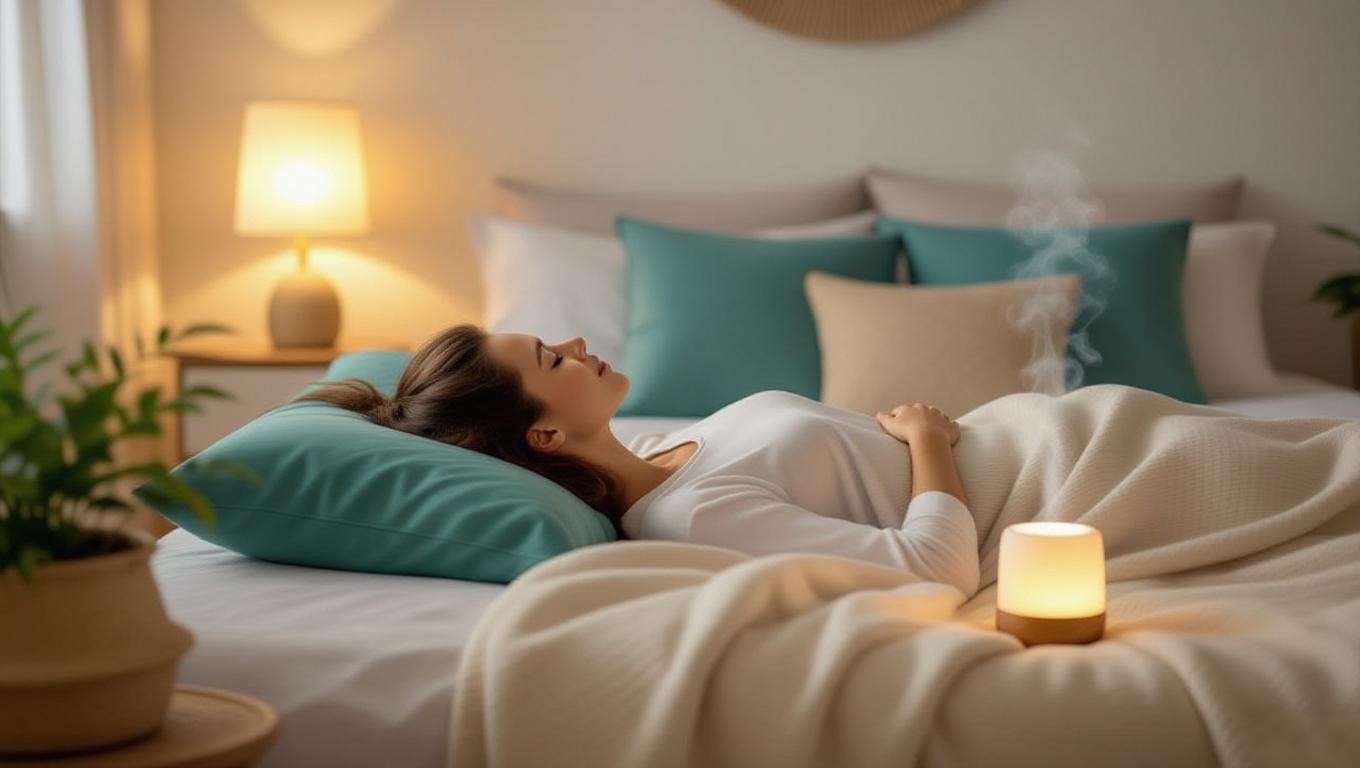
Designing a Restful Bedroom
Your bedroom should be a sanctuary for sleep. Keep the temperature between 60-67°F, as cooler environments promote deeper rest, per the National Sleep Foundation. Use blackout curtains to block light, which can suppress melatonin production. If noise is an issue, consider a white noise machine or earplugs. Remove electronics or use blue-light-blocking glasses if you must use devices at night. A clutter-free space also signals to your brain that it’s time to relax.
Establishing a Pre-Sleep Routine
A consistent pre-sleep routine trains your body to recognize bedtime. Spend 30-60 minutes winding down with calming activities. Dim the lights, read a physical book, or practice gentle stretching. Avoid screens, as their blue light can delay melatonin release by up to three hours, according to a 2019 study in Chronobiology International. Here’s a sample routine:
- 6:30 p.m.: Light dinner with sleep-friendly foods.
- 8:00 p.m.: Gentle yoga or a walk.
- 9:00 p.m.: Dim lights, sip chamomile tea, and journal.
- 9:30 p.m.: 10-minute guided meditation.
- 10:00 p.m.: Lights out.
Example: Dr. Lisa, a sleep coach, credits her 45-minute wind-down routine for helping her fall asleep in under 15 minutes consistently.
The Role of Aromatherapy and Sound
Aromatherapy can enhance relaxation. Lavender essential oil, used in a diffuser or as a pillow spray, has been shown to reduce anxiety and improve sleep quality, per a 2017 study in Journal of Alternative and Complementary Medicine. Chamomile and cedarwood are other soothing options. For sound, try nature tracks (e.g., rainfall) or binaural beats, which synchronize brainwaves to promote relaxation. Apps like Insight Timer offer free soundscapes tailored for sleep.
Overcoming Common Sleep Challenges with Mindfulness
Managing Insomnia
Insomnia, the persistent inability to fall or stay asleep, affects nearly 30% of adults, according to the American Academy of Sleep Medicine. Mindfulness can be a game-changer by reducing hyperarousal—the state of heightened alertness that keeps you awake. A 2019 study in Behavioral Sleep Medicine found that mindfulness-based interventions improved sleep onset by 20 minutes for chronic insomniacs. If you wake up at night, try this mindfulness approach: focus on your breath, counting each exhale up to 10, then restart. Avoid checking the clock, as it can trigger anxiety. This practice anchors your mind, helping you drift back to sleep.
Coping with Stress and Anxiety
Stress and anxiety are leading culprits behind sleepless nights. When your mind races with worries about work, relationships, or finances, your body releases cortisol, signaling alertness instead of rest. Mindfulness techniques like progressive muscle relaxation (PMR) can help. Starting from your toes, tense each muscle group for 5 seconds, then release, working up to your head. This 10-minute practice reduces physical tension and calms the mind. Visualization is another powerful tool: imagine a serene place, like a beach or forest, engaging all your senses to deepen relaxation. Expert Insight: Dr. Michael Breus, a renowned sleep psychologist, notes that mindfulness can reduce bedtime anxiety by 35% when practiced consistently.
Addressing Irregular Sleep Schedules
Shift work, jet lag, or irregular routines can disrupt your circadian rhythm, making restful sleep elusive. Mindfulness helps by fostering consistency and calming the body during transitions. To reset your internal clock, practice mindfulness in the morning with a 5-minute meditation focusing on gratitude or intention-setting. Pair this with 15-20 minutes of morning sunlight exposure, which boosts melatonin production for better sleep later, per a 2020 study in Sleep Health. For shift workers, mindfulness naps—short, 10-minute guided meditations during breaks—can enhance alertness and improve nighttime sleep quality.
The Long-Term Benefits of Mindful Sleep Practices
Improved Mental Clarity and Productivity
Quality sleep supercharges your brain. A 2018 study in Nature Communications found that consistent, restful sleep improves cognitive functions like memory, problem-solving, and creativity by up to 40%. Mindfulness practices enhance this by ensuring deeper, uninterrupted sleep cycles. For example, regular meditation strengthens the prefrontal cortex, the brain region responsible for focus and decision-making. Imagine starting your day with sharp clarity, tackling tasks with ease, and feeling more creative in your work or hobbies. Mindful sleep practices lay the groundwork for sustained mental performance.
Enhanced Emotional Resilience
Restful sleep is a cornerstone of emotional health. When you’re well-rested, you’re less reactive to stress and better equipped to handle life’s challenges. A 2021 study in Journal of Affective Disorders found that individuals with consistent sleep patterns reported 25% lower rates of anxiety and depression. Mindfulness amplifies this by helping you process emotions before bed, reducing the likelihood of carrying stress into your sleep. Case Study: Mark, a 42-year-old entrepreneur, struggled with irritability due to poor sleep. After adopting a nightly gratitude journal and body scan meditation, he reported feeling calmer and more patient within three weeks, transforming his relationships at work and home.
Physical Health Benefits
Sleep is a pillar of physical health, reducing risks of chronic conditions like heart disease, diabetes, and obesity. The National Institutes of Health (NIH) states that adults who sleep 7-9 hours nightly have a 20% lower risk of cardiovascular issues compared to those sleeping less than 6 hours. Mindfulness supports this by promoting consistent, high-quality sleep. By lowering stress hormones, it also reduces inflammation, a key driver of chronic disease. Holistic practices like proper nutrition and exercise, combined with mindfulness, create a virtuous cycle of health and restful sleep.
Practical Tools and Resources for Better Sleep
Recommended Apps and Technology

Technology can support your sleep journey when used mindfully. Apps like Insight Timer offer thousands of free guided meditations tailored for sleep, from body scans to soothing soundscapes. Sleep Cycle tracks your sleep patterns using your phone’s accelerometer, providing insights into your sleep quality. Wearable devices like Fitbit or Oura Ring monitor sleep stages (light, deep, REM) and offer personalized recommendations. However, avoid over-relying on tech—use it as a tool, not a crutch. Pro Tip: Set a “tech curfew” 30 minutes before bed to minimize blue light exposure.
Books and Expert Resources
For deeper learning, explore authoritative books like Why We Sleep by Dr. Matthew Walker, which unpacks the science of sleep in accessible terms. The Sleep Solution by Dr. W. Chris Winter offers practical strategies for overcoming sleep challenges. Reputable websites like the Sleep Foundation (sleepfoundation.org) and the American Academy of Sleep Medicine (aasm.org) provide evidence-based tips and resources. For personalized guidance, consider consulting a sleep specialist or certified mindfulness coach to tailor strategies to your needs.
Building a Support System
Community can make a big difference in your sleep journey. Join online forums like Reddit’s r/sleep or the Sleep Foundation’s community boards to share experiences and tips. Local wellness groups or meditation classes offer in-person support. If sleep challenges persist, a sleep specialist can assess for underlying issues like sleep apnea or restless leg syndrome. Connecting with others reinforces accountability and provides emotional support, making it easier to stick with mindful sleep practices.
FAQs
How long does it take to see results from mindfulness practices for sleep?
Most people notice improvements within 1-2 weeks of consistent practice, such as shorter sleep onset times or fewer nighttime awakenings. Consistency is key—set a daily reminder to practice your chosen technique, like a body scan or breathing exercise.
Can mindfulness help with chronic insomnia?
Yes, mindfulness-based interventions are highly effective for chronic insomnia. A 2020 meta-analysis in Sleep Medicine found that mindfulness reduced insomnia symptoms by 30% in participants. Pairing mindfulness with cognitive behavioral therapy for insomnia (CBT-I) can yield even better results.
What’s the best time to practice mindfulness for sleep?
Evening or pre-bedtime sessions (30-60 minutes before sleep) are ideal, as they help transition your body into a relaxed state. However, morning mindfulness can also regulate your circadian rhythm, supporting better sleep over time.
Are there any risks to mindfulness or holistic sleep practices?
Mindfulness is generally safe, but some may feel frustrated if results are slow. Start with short sessions (5 minutes) to build confidence. If you have underlying mental health conditions, consult a professional to ensure mindfulness complements your treatment plan.
Conclusion
Sleep is a precious investment, not a free handout—hence, I won’t sleep with you for free. By embracing mindfulness, optimizing your environment, and prioritizing holistic well-being, you can unlock restful nights that transform your health, productivity, and happiness. Start small: try a 5-minute meditation tonight or swap your evening coffee for chamomile tea. Commit to one mindful practice for a week, and watch how your sleep improves. Share your progress or challenges in the comments below—let’s build a community of better sleepers together!

